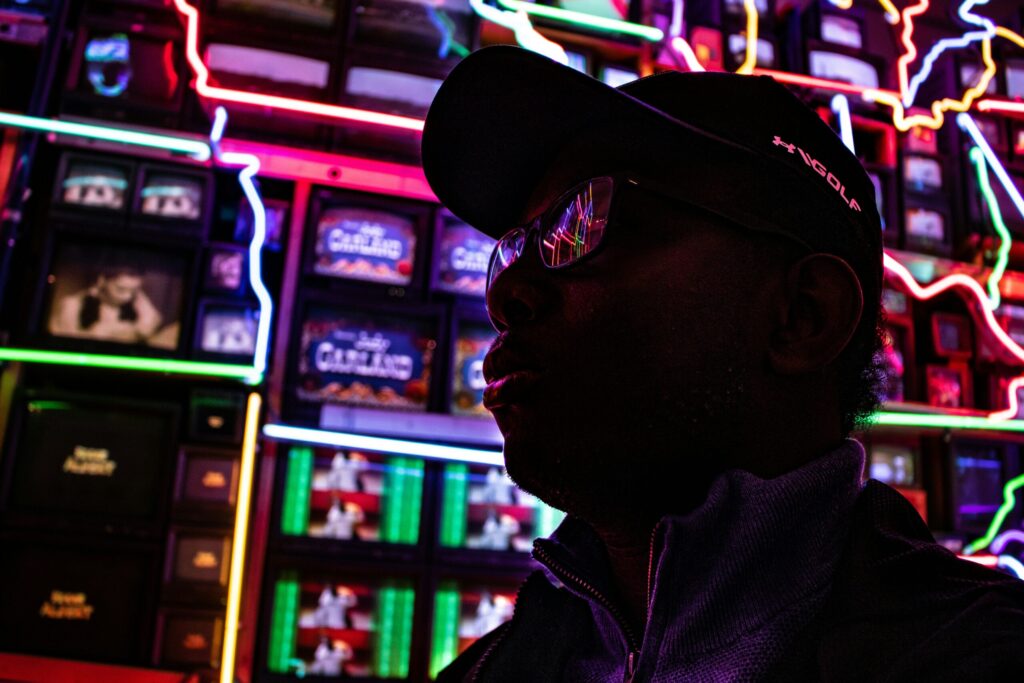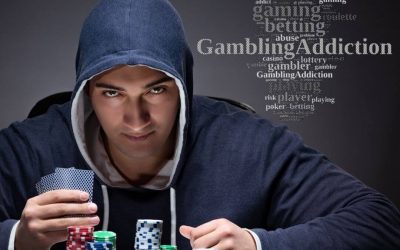Last updated: November, 2025
Many people gamble for excitement, fun, or social connection. But for some, gambling begins to take on a different weight. The thrill that once brought joy starts to create stress, guilt, and loss of control. Asking, “Do I have a gambling addiction?” is often the first brave step toward understanding what is really happening and how to find balance again.
Understanding Gambling Addiction
What Is Gambling Addiction?
Gambling addiction is a behavioural condition where the urge to gamble becomes uncontrollable, even when it causes harm. It is sometimes called a process addiction because, rather than relying on a substance, the behaviour itself triggers the brain’s reward system.
Each win releases dopamine, the same chemical linked to pleasure and motivation. Over time, the brain begins to crave that rush again and again, even when losses and consequences follow.
How Gambling Affects the Brain’s Reward System
Gambling activates the same neurological pathways involved in substance use. The combination of anticipation, risk, and reward produces powerful sensations that temporarily relieve stress or emotional pain.
This short-term relief reinforces the habit, making it harder to stop. As the brain adapts, it requires greater stimulation (bigger bets, riskier games) to feel the same excitement. This cycle is what turns occasional gambling into a dependency.
Why Gambling Can Become a Behavioral Addiction
What makes gambling addiction so complex is that it can appear harmless at first. Games, sports betting, or online casinos are easily accessible and socially accepted. But when gambling becomes a way to escape, numb feelings, or cope with anxiety, it shifts from entertainment to emotional survival.
This shift can happen slowly, often unnoticed, until the behaviour starts to take control.
Recognizing the Signs and Symptoms
Behavioral and Emotional Signs of Gambling Addiction
The signs of gambling addiction often appear in patterns of thought and emotion before they show in visible actions. Common signs include:
- Feeling an intense urge to gamble despite negative consequences
- Gambling to relieve stress, sadness, or boredom
- Lying to loved ones about gambling habits
- Being unable to stop once started
- Feeling restless, irritable, or anxious when trying to cut down
These experiences can leave a person feeling trapped between the need for relief and the shame of losing control.
Financial and Relational Consequences
Problem gambling often leads to significant financial strain. Some individuals gamble away savings, wages, or money set aside for family needs. Others may borrow or hide debt to continue playing.
The impact extends beyond finances, relationships often suffer. Loved ones may feel betrayed, confused, or worried, while the gambler feels increasing guilt and isolation. These emotional consequences can be just as painful as the financial ones.
How to Know When Gambling Is No Longer Just Entertainment
If gambling starts to occupy more space in your thoughts, affects your mood, or causes distress when you try to stop, it may no longer be just a pastime.
When gambling becomes the main way to escape or regulate emotions, it is a sign that help and support could make a real difference.
Emotional Impact and Co-Occurring Challenges
The Link Between Gambling, Anxiety, and Depression
Many people turn to gambling as a temporary escape from anxiety or sadness. But over time, it often deepens those same emotions. The highs and lows of betting can cause mood swings and exhaustion, making anxiety and depression worse.
These experiences can create a vicious cycle: emotional distress leads to gambling, and gambling increases emotional distress.
Guilt, Shame, and the Emotional Cycle of Addiction
After a gambling spree, feelings of guilt and shame can be overwhelming. A person may promise never to gamble again, only to feel drawn back days or weeks later.
This repeating pattern often leads to hopelessness or self-criticism. Recognising that these feelings are part of the addiction process, not a reflection of worth or weakness, is essential for healing.
When Gambling Triggers Deeper Psychological Pain
Sometimes gambling addiction coexists with unresolved trauma, grief, or chronic stress. These underlying issues can make recovery more challenging but also more meaningful. Addressing both the addiction and its emotional roots allows for deeper, more lasting healing.

Treatment for Gambling Addiction
Therapeutic Approaches and Behavioral Interventions
Treatment for gambling addiction focuses on understanding triggers and building healthier coping strategies. Therapists help individuals identify the emotions or situations that lead to gambling and create practical tools to manage them differently.
Cognitive behavioural therapy (CBT), mindfulness-based therapy, and group sessions are all effective ways to develop awareness and resilience.
Cognitive Behavioural Therapy (CBT) and Relapse Prevention
CBT helps people break the connection between stress, emotion, and the impulse to gamble. Through guided reflection, individuals learn to recognise automatic thoughts, challenge them, and replace them with balanced perspectives.
Relapse prevention strategies include learning to anticipate high-risk moments and using grounding techniques or social support to stay centred.
Holistic and Supportive Recovery Environments
Holistic approaches complement therapy by restoring overall wellbeing. Activities such as gentle exercise, relaxation, journaling, and time in nature help the nervous system find calm.
Recovery thrives in environments that feel safe, respectful, and understanding. Healing is not just about stopping gambling; it is about learning to live with presence, purpose, and peace.

Recovery and Rebuilding Life After Gambling
Recovery from gambling addiction is absolutely possible. It often begins with awareness, followed by small but steady changes. Professional guidance can provide the structure and encouragement needed to rebuild trust, stability, and self-worth.
Life after gambling can include renewed relationships, financial recovery, and emotional peace. The process takes time, but each moment of honesty and courage is a sign of progress.
Frequently Asked Questions: Gambling Addiction
If you often feel unable to stop, hide your gambling, or experience distress when you try to quit, these may be signs of addiction. Gambling to escape emotions or solve problems also suggests a deeper issue. Speaking with a mental health professional can help clarify what is happening and what kind of support could help.
Gambling addiction develops through a mix of psychological, emotional, and environmental factors. The brain becomes conditioned to seek the dopamine “rush” of winning. Over time, stress, loneliness, or unresolved trauma can intensify the need to gamble. Awareness and therapy can help break this cycle safely.
Yes. Since gambling does not involve a chemical substance, treatment usually focuses on therapy and emotional healing rather than medication. Cognitive behavioural therapy, mindfulness, and support groups have proven effective in promoting recovery and preventing relapse.
Therapies like CBT, schema therapy, and group counselling address both the behaviour and the underlying emotions. They teach new coping strategies and help restore confidence and emotional balance. In some cases, holistic activities such as yoga or art therapy are integrated to support relaxation and focus.
Families can play a vital role by offering understanding rather than judgment. Setting healthy boundaries, encouraging professional help, and avoiding enabling behaviours all support recovery. Compassion and patience go a long way in helping a loved one regain control and hope.








